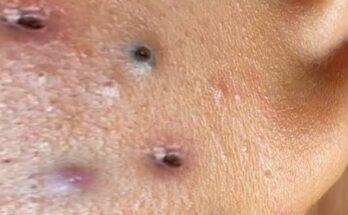Artificial intelligence and machine learning are also playing a growing role in nursing. These tools assist in predictive analytics, helping nurses anticipate patient complications and allocate resources more effectively. For example, AI algorithms can analyze patient histories and flag early warning signs of conditions like sepsis, enabling timely intervention. Far from replacing nurses, these technologies augment their capabilities, allowing healthcare professionals to focus more on the human aspects of care, such as emotional support, patient education, and advocacy. The combination of technological tools and nursing expertise creates a more responsive and precise healthcare system. Education and professional development are undergoing transformation as well. By 2025, nursing education is expected to be more flexible and accessible, with a blend of in-person, online, and simulation-based learning experiences. Virtual reality and augmented reality simulations provide realistic training environments for complex procedures, enhancing skills and confidence before nurses interact with real patients. This immersive learning approach ensures that nurses are better prepared for high-pressure situations while maintaining patient safety.

Additionally, continuing education programs emphasize interdisciplinary collaboration, leadership, and data literacy, ensuring that nurses are equipped to meet the demands of modern healthcare. The role of nurses is also expanding beyond traditional patient care. Many nurses are stepping into leadership, policy-making, and research positions, influencing healthcare at systemic levels. In 2025, we can expect more nurses to serve as advocates for public health, leading initiatives that address health disparities, preventative care, and community wellness. The profession’s perspective is invaluable in shaping policies that are patient-centered and equitable, making nursing an integral voice in national and global healthcare discussions. Patient-centered care remains at the heart of nursing, but the definition of what it entails is evolving. In the future, nurses will increasingly adopt a holistic approach that considers not only physical health but also mental, emotional, and social well-being. Collaborative care teams that include physicians, therapists, social workers, and nutritionists are becoming more common, with nurses acting as coordinators who ensure that care is comprehensive and seamless. This emphasis on integrated care reflects a broader understanding of health as a multifaceted concept, requiring attention to all aspects of a person’s life. Workforce challenges, including shortages in certain regions and high levels of burnout, are pressing issues for the nursing profession. In response, healthcare organizations are implementing measures to promote wellness, resilience, and job satisfaction among nurses. Flexible scheduling, mental health support, and professional recognition programs are becoming standard practices to retain skilled nurses and attract new talent. By addressing these challenges proactively, the profession can sustain a strong and motivated workforce capable of meeting the growing demands of healthcare. Diversity and inclusivity are also central to the future of nursing. As societies become more multicultural, nurses must provide culturally competent care that respects patients’ values, beliefs, and traditions. Educational programs and workplace policies are increasingly emphasizing cultural sensitivity and anti-discrimination practices, ensuring that all patients receive respectful and equitable care. Nurses from diverse backgrounds bring unique perspectives that enrich patient care, foster innovation, and strengthen community trust in healthcare systems. The aging population is another factor shaping nursing in 2025. As people live longer, there is a growing need for geriatric care, chronic disease management, and end-of-life support. Nurses are expected to lead initiatives that enhance quality of life for older adults, including preventive care, home health services, and palliative care programs. This demographic shift underscores the importance of empathy, patience, and specialized knowledge in providing care that respects the dignity and independence of older patients. Sustainability and environmental awareness are emerging considerations in healthcare, and nursing is no exception. Nurses are increasingly involved in initiatives that promote eco-friendly practices in hospitals, reduce medical waste, and encourage environmentally responsible health behaviors among patients. By integrating sustainability into everyday practice, nurses contribute not only to individual health but also to the well-being of communities and the planet. The future of nursing also highlights the importance of research and evidence-based practice. Nurses are contributing to scientific knowledge by conducting studies that improve patient care, inform policy, and guide clinical decision-making. Access to comprehensive data and collaboration with multidisciplinary research teams enables nurses to implement interventions that are both effective and efficient. In 2025, evidence-based nursing will continue to be a cornerstone of high-quality healthcare, ensuring that patient care is informed by the latest scientific findings. In conclusion, nursing in 2025 is set to be more technologically integrated, patient-focused, and diverse than ever before. The profession will continue to evolve, addressing complex health challenges while maintaining its core values of compassion, advocacy, and excellence. Nurses will harness new tools, expand their roles in leadership and policy, and embrace holistic approaches to patient care. With a focus on education, well-being, and innovation, the nursing profession is poised to meet the demands of modern healthcare while shaping a healthier, more equitable future for all. The path forward is both challenging and promising, and the dedication and adaptability of nurses will ensure that they remain at the heart of healthcare for years to come.



